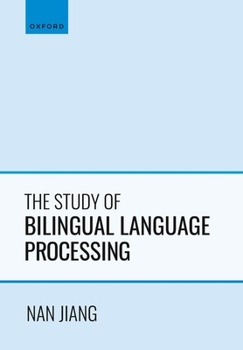The Study of Bilingual Language Processing
This book offers a detailed account of the issues, models, and outcomes of research into the cognition of bilingualism. The first chapter identifies the most important characteristics of this research and its historical developments, before the main part of the book explores studies of four bilingual processing topics. The first of these is lexico-semantic representation and organization in bilinguals, which deals with how words and meanings are represented and connected in the bilingual mind. The second, cross-language priming, explores the bilingual lexicon by examining how exposure to words in one language may affect word recognition in another and leads to the discovery of an asymmetry in translation priming. The third topic is selective lexical access in bilinguals, which examines whether bilinguals can selectively activate one language while suppressing the other, while the fourth is code switching, focussing on language control and language regulation mechanisms in bilinguals. The book concludes with a chapter that reviews research in three areas beyond lexical processing: autobiographical memory, the representation and interaction of syntactic knowledge, and the consequences of bilingualism. The volume demonstrates the theoretical significance and real-world practical implications of research into bilingual language processing, and will be a valuable resource for seminars and courses from advanced undergraduate level upwards.
Format:Hardcover
Language:English
ISBN:019885238X
ISBN13:9780198852384
Release Date:June 2023
Publisher:Oxford University Press
Length:274 Pages
Weight:1.45 lbs.
Dimensions:1.5" x 7.1" x 9.3"
Customer Reviews
0 rating





